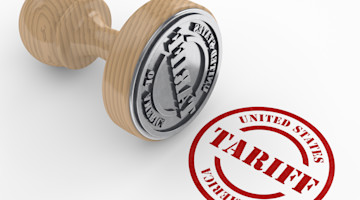This week's "International News From the Field: Europe" column features highlights from an eight-page report on the Italian automotive industry prepared by AMT. To download and read the full report, click .
The Italian automotive industry is a major player in Europe, ranking sixth globally in production volume. In 2022, Italy produced 796,394 vehicles, accounting for 1% of the global production. This total was comprised of 60% passenger vehicles, 40% commercial vehicles, and 0.1% buses. Although there was a decline to 770,000 vehicles in 2023, production is expected to recover to 870,000 by the end of the decade. The industry contributed $107 billion to Italy’s economy in 2021, with $40 billion in vehicle and component exports, making up 5.6% of GDP and 11.5% of the manufacturing sector. It also employed 272,000 people across 5,439 firms.
Regional Overview:
Piemonte is a major hub for the automotive sector and is home to Stellantis and significant research centers like Centro Ricerche Fiat (CRF). This region features a complete production chain, from design to assembly.
Emilia-Romagna is known as Motor Valley and home to iconic brands like Ferrari and Lamborghini. The region excels in R&D and has a strong automotive components sector. The University of Motor Vehicles in Emilia-Romagna (MUNER) collaborates closely with the industry.
Lombardy, especially in Brescia, is known for its expertise in component manufacturing. The Lombardy government supports the sector through initiatives that integrate IoT and reduce emissions.
Abruzzo's Automotive Cluster promotes technological advancement through collaboration. Current projects include the use of 5G for intelligent transportation systems.
Trentino features the Mechatronics Center and Hub Innovazione Trentino (HIT) in Trento, which support innovation and startups in the automotive sector.
OEMs:
Stellantis dominates the Italian automotive industry with significant investments in electrification and sustainability. Projects include transforming the Mirafiori Complex and developing a gigafactory in Termoli.
Iveco is a leading manufacturer of commercial vehicles, investing in low-emission and electric buses, with significant production activities in Foggia and Turin. They saw a 5.2% increase in industrial activity in 2023.
Piaggio, known for the Vespa scooter, Aprilia, and Moto Guzzi, is developing AI-driven tools for assembly line efficiency and expanding into electric mobility.
Lamborghini is investing heavily in hybrid technology with a $2-billion investment over two years and plans to introduce hybrid options for all models by year’s end. They also sold a record-breaking 10,000 units in 2023.
Ferrari maintains a balance between exclusivity and market presence, selling 13,221 units in 2023. They have introduced new models like the SF90 Stradale and Purosangue. Additionally, they are investing $1.5 billion in alternative fuels and electric batteries by 2030 to achieve carbon neutrality.
Tier 1 Suppliers:
The sector saw significant growth in revenue between 2021-2022, driven by subcontractors specializing in specific processes.
Streparava is a leading provider of chassis and powertrain components and has several ongoing and upcoming investment projects for 2024, including additive manufacturing for their process.
Freni Brembo, well-known for its continuous innovation and expansion in the field of braking systems, focuses on high-performance, sustainable solutions and advanced manufacturing technologies.
Marelli is significantly boosting its investment in electric vehicle (EV) technologies, with a focus on developing advanced powertrain solutions and enhancing its product offerings to meet the rising demand for EVs. This includes innovations in thermal management systems and electrified powertrain components. Marelli has been awarded a significant contract from a major global carmaker to supply battery thermal plates for future battery electric vehicles (BEVs). The supply will begin in 2024, reaching approximately 5 million units over the contract period. This project is the result of global development, thanks to Marelli’s worldwide R&D centers, and the production will take place in China, Mexico, and Romania.
.
For more information, please contact Conchi Aranguren at caranguren@AMTonline.org.









